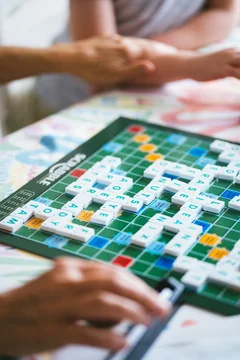
Last week in Pierre Fabre Medicament SAS v. Rubicon Research Private Ltd., C.A. No. 24-811-JLH-SRF (D. Del.), Judge Fallon ruled on a set of discovery disputes involving a motion to compel the patentee to make its inventors—who are employees residing in France—available for fact depositions under FRCP 30(b)(1).
In this case, it looks like the accused infringer has a an improper inventorship defense—which sounds like a very good reason to want to depose the inventors.
The interesting thing, to me, is that the patentee tried to fight these depositions at all. The Court easily (and unsurprisingly) batted away each of their objections.
The patentee primarily argued that their own employee inventors, who previously agreed "to testify in support [of the patents-in-suit]" as need, had to be noticed under the Hague Convention. The Court found that no, a plain-old FRCP 30(b)(1) deposition notice is just fine:
[T]he assignment agreements in this case contain express language compelling the assignor to provide testimony in litigation in support of U.S. patents, and it is reasonable to infer that the location of litigation and testimony regarding U.S. patents would be in the United States. See Aerocrine, 267 F.R.D. at 112 (granting a motion to compel the U.S. depositions of foreign inventors who executed assignment agreements "that specifically contemplated the provision of testimony for purposes of enforcing the patent rights."). Accordingly, the Co-Inventors should be made available for depositions under Rule 30(b)(1), and Plaintiffs' position that Defendant was required to follow the procedures under the Hague Convention is unpersuasive.
Pierre Fabre Medicament SAS v. Rubicon Research Private Ltd., C.A. No. 24-811-JLH-SRF, D.I. 116 (D. Del. Nov. 7, 2025).
Plaintiff also argued that the 30(b)(1) notices themselves are too burdensome. But that is just not a valid objection under the rule:
Plaintiffs also argue that the deposition testimony is not relevant or proportional to the case. . . . However, Plaintiffs cite no authority demonstrating how these considerations apply to a properly noticed deposition under Rule 30. See, e.g., Fed. R. Civ. P. 30(a)(1) ("A party may, by oral questions, depose any person, including a party, without leave of court except as provided in Rule 30(a)(2).").
Id.
The Court also addressed deposition location, noting that the briefing lacked clear positions on this. The Court nonetheless ordered the inventors deposed in the United States, and within about a month:
As to the scope of the relief granted herein, Defendant's letter submission and proposed form of order do not specify whether the depositions should take place in the United States or remotely in France. . . . The record demonstrates that Defendant offered to take remote depositions for witnesses residing outside of the United States. . . . Unless the parties reach agreement and stipulate to remote depositions, IT IS ORDERED that Plaintiffs shall make the Co-Inventors available for deposition in the United States no later than December 5, 2025.
Id.
If you enjoyed this post, consider subscribing to receive free e-mail updates about new posts.





